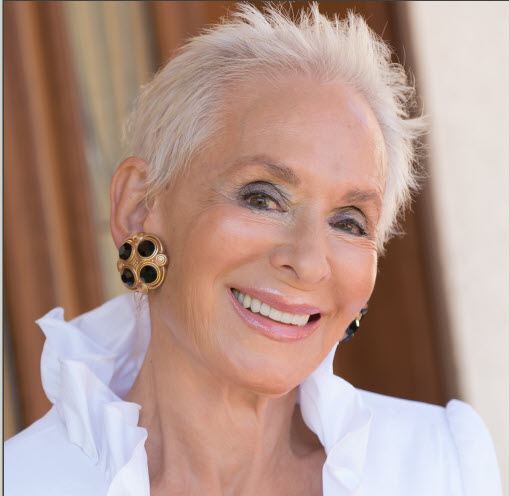

In a local “Dear Aunt Mabel” advice column, a woman signed herself “Upset” and complained about having been given a senior discount without her requesting it.
She wrote in part, “Aunt Mabel, I have more than 10 years before I turn 65. By today’s standards, this is far from old. This has caused me considerable embarrassment. . . I think these employees should be given some sensitivity training. I’d like your thoughts on “senior citizen” discounts.”
Aunt Mabel replied, “The age of eligibility for senior discounts can begin from a person’s mid-50s “and they can be a blessing for people who are no longer working and living on fixed incomes.” Aunt Mabel went on to suggest that instead of being embarrassed, “Upset” should simply say she is not eligible for the senior discount and would prefer to pay full price.
Some time ago, I spoke to a group of midlife and older women. After my talk, an older woman raised her hand and said some of my suggestions about how to maintain youthful attributes were offensive to older women. In an agitated voice she said, “There is nothing wrong with being old. It’s a fact of life. You are preaching snake oil.”
I commended her for accepting her stage of life and asked what she liked best about being old.
In a flash she snapped, “Senior discounts” which generated a lot of audience approval.
I’m with Aunt Mabel – to a point. Senior discounts have become a way of life. And those no longer working and on a limited income appreciate all the help they can get. I would not for all the world deny anyone a senior discount if – and this is a big if – it’s really needed.
However, if I see you at McDonald’s asking for a senior coffee and your new Mercedes is parked outside, I may be tempted to let the air out of your tires. Not that I would do such a dastardly thing, but I might be tempted.
Let me repeat, if you need a senior discount, I’m on your side. Go for it.
One reason I don’t like senior discounts is that the discount is factored into the cost of doing business and is reflected in the prices non-seniors pay. I think that’s a tad unfair. But I can live with it because some folks do need help.
Another reason I don’t like the senior discount is that it is discriminatory and divisive. Think about it: Why have a discount based solely on advanced age? It suggests ALL seniors are needy. It’s not only unfair, it’s irritating to those, like “Upset,” who do not want to be regarded as a senior.
A senior discount suggests class victimization: Seniors are victims of inadequate income. Seniors are victims of a government that doesn’t care about them. Seniors are victims of high drug prices and inadequate health care. While all of this may be true, a special discount doesn’t help correct any of it. It just breeds discontent.
If any segment of society should get a discount, I think it’s young parents, especially single parents with young kids. But it is obvious a discount for any part of the population is potentially divisive.
I asked a couple of young people about what they thought about senior discounts. Youthfully altruistic, they said they didn’t really give it much thought, but upon some reflection seemed to think it was the right thing to do.
An older mom I know strongly disapproves of the discounts. She is struggling with financially demanding teens and it irritates her that some retirees seem to think the senior discount is an automatic entitlement – needed or not.
I understand the mom’s angst when financially able retirees have the attitude, “I’ve worked all my life and now I’m entitled to whatever I can get.” This attitude is more common that you might think.
We don’t need anything more to compound and perpetuate a senior victim syndrome. A feeling of victimization lessens self-worth, and diminishes contentment. When you are encouraged to believe you may not be “getting yours”, it can stir up resentment that spills over into an attitude about life that is hurtful to self and others.
My solution to senior financial woes is better financial preparation. Failing that, delayed retirement when possible should be encouraged and there is nothing wrong with having a job after retirement. There is nothing better than productivity and accomplishment to keep the mind and body up and running, and your pocketbook in good shape. Being able to say “No thanks, I don’t need it” is great for self-esteem. And like “Upset,” choosing not to accept a senior discount may keep you feeling younger longer.
Of course, I could be wrong. What do you think?
*** *** *** ***

Duane Graveline, MD, MPH: “The full range of statin side effects includes cognitive dysfunction, behavioral and emotional disorders, chronic nerve and muscle damage and an ALS-like neuromuscular degenerative process, as major categories of damage.
Thousands of statin users, like myself, have been afflicted with peripheral neuropathies with a tendency to be resistant to all traditional medical treatment.
Statins inhibit not only dolichols, corrupting our DNA damage correction, but CoQ10 as well, increasing our damage load. Predictably the inevitable effect is increased mitochondrial DNA damage — considered by many authorities to be the mechanism of our aging process as well as that of many chronic diseases.
Many of the statin side effects are permanent and weakness and fatigue are common complaints. Many statin victims say that abruptly, almost in the blink of an eye, they have become old people.
Statins block the synthesis of CoQ10 and dolichols, thereby contributing directly to the premature common chronic ills of aging. Since this involves normal physiologic processes, it is silent. By the time we become aware of it, it is already far too late and the damage has been done to those susceptible. This, in my judgment, is the truly Dark Side of Statins.” (From Amazon.com)
Barbara: Your article re: “senior discounts” resonated with me since my deceased husband detested the concept as “robbing the younger to benefit the older”. He died at age 68, but I recall one time when he was in his 60’s we went to have pizza.
After waiting in a long line to order and pay for our pizza, the fellow at the window insisted on giving him a senior discount. He turned and addressed the younger people (some with small children) and thanked them for paying for the senior discount he didn’t want.
Then he gave his lesson on economics that in order to allow him cheaper pizza, they would pay more for theirs. The line broke out in applause included a couple other “senior citizens”. He had spend this entire career in merchandising.
After he died, I went to work part time for a highly respected retailer of fine hand made oriental and other unique area rugs. Owner was a younger second generation of the business. Almost everyone regardless of age expected a discount or to negotiate a price since they had the impression that every oriental rug store operated that way. But my employer would explain to those who were resentful when he refused to barter on price.
He told them that in order to offer discounts on his fine merchandise, that to remain in business, he would have to artificially inflate the original asking price above what the article was worth, and that such an original price would be dishonest on his part.
Some customers were stunned, but appreciative of the lesson in economics, others
less so, but the store’s reputation was well known, respected, and remained in business for more the 60 years until he retired and closed the doors some years ago.